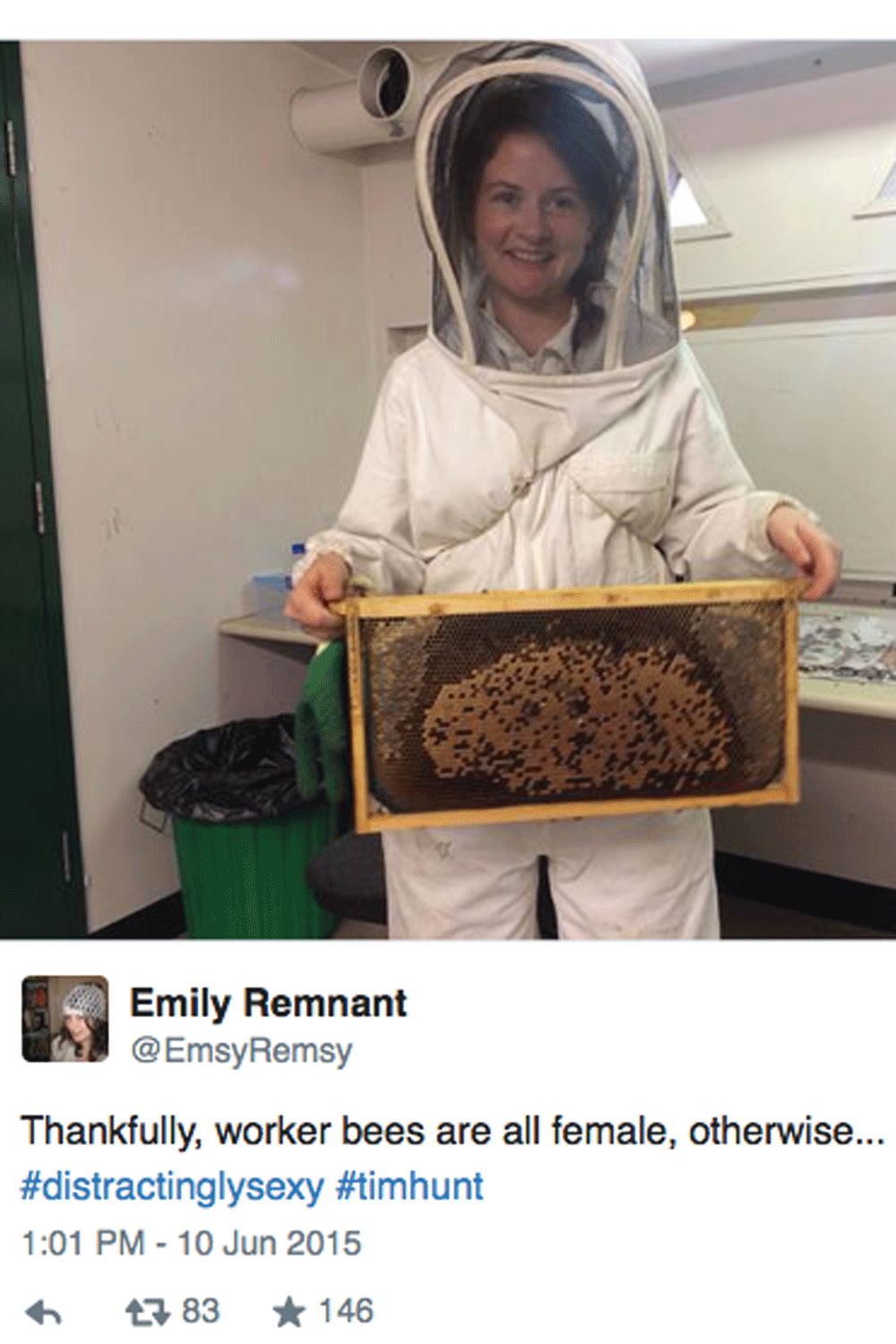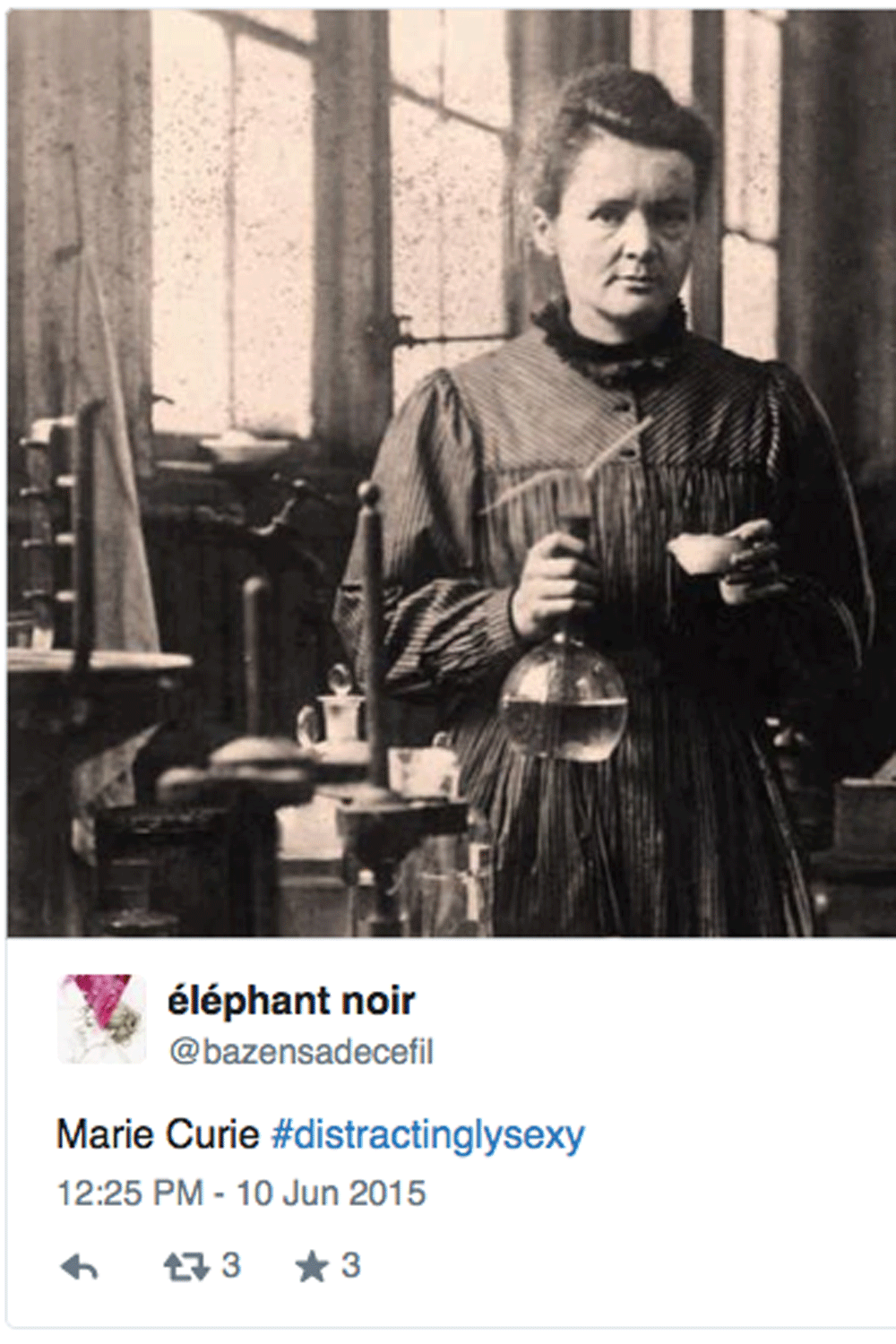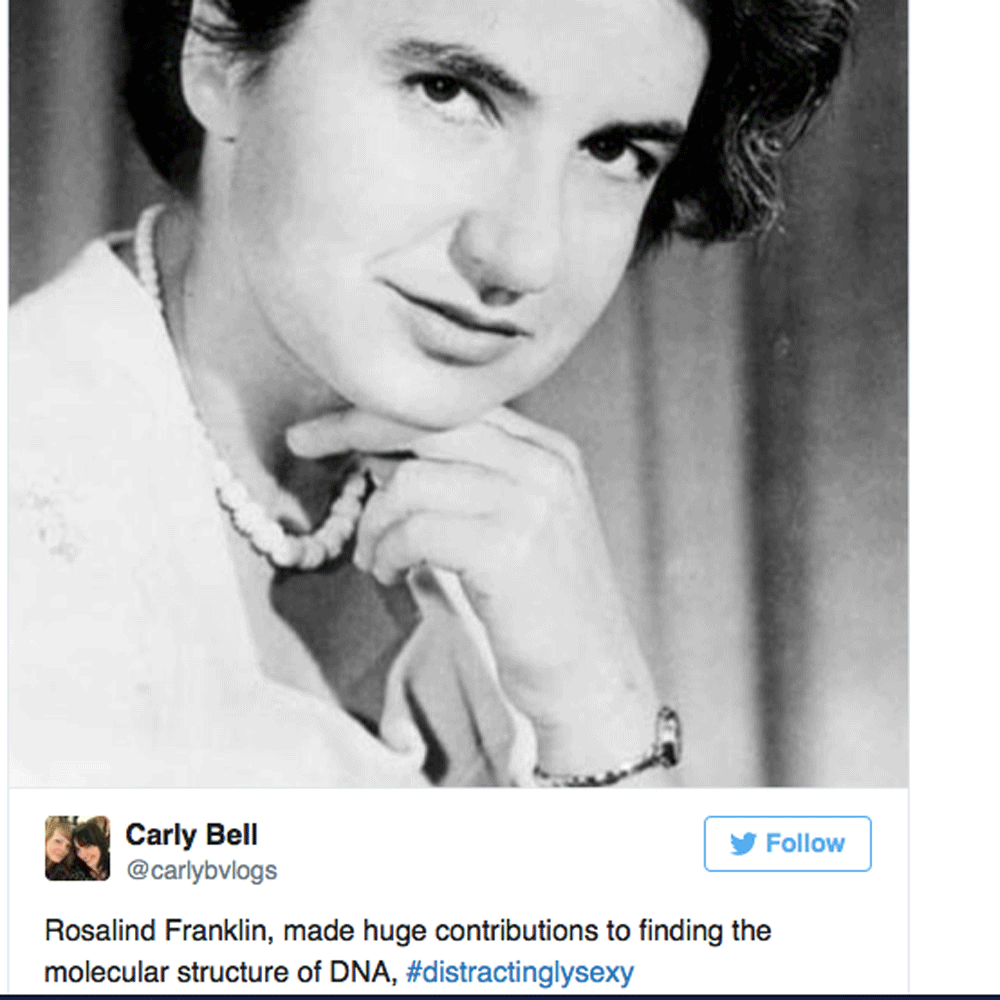Nobel Prize Winning Scientist Who Said Labs Should Be Gender Segregated Has Resigned
Biochemist told conference: ‘girls fall in love with you and when you criticise them, they cry.’
Biochemist told conference: ‘girls fall in love with you and when you criticise them, they cry.’
English Biochemist, Tim Hunt, who faced a social media backlash after making sexist comments about ‘girls’ in labs, has resigned.
Hunt, who was awarded the 2001 Nobel prize in physiology or medicine, and received a knighthood in 2006, made the remarks to the World Conference of Science Journalists in Seoul, South Korea.
Today, Hunt resigned from his position as honorary professor at University College London in the faculty of life sciences.
The university has released a statement that says: 'UCL was the first university in England to admit women students on equal terms to men, and the university believes that this outcome is compatible with our commitment to gender equality.’
Imran Khan, Chief Executive of the British Science Association has said that 'Sadly, dealing with sexism and other forms of discrimination are a daily reality for many people, and I imagine it's hard to find Sir Tim's comments funny if you've been held back by systemic bias for years - whether those remarks were intended as a joke or not.'
Prior to making his comments, the 72-year-old English Biochemist thanked female journalists for attending, but warned them that he has a ‘chauvinist reputation.’
Celebrity news, beauty, fashion advice, and fascinating features, delivered straight to your inbox!
Then he went on to say:‘Let me tell you about my trouble with girls…three things happen when they are in the lab…you fall in love with them, they fall in love with you and when you criticize them, they cry.’
He advocated for single-sex labs, saying they would would enable a better working environment – but that he didn’t want to ‘stand in the way of women.’
Unfortunately, his sexist tirade wasn’t caught on tape, but was noted town and tweeted by the director of the Science Journalism course at London’s City University, Connie St Louis. She said: ‘Really, does this Novel laureate think we are still in Victorian times?’
Other female scientists have expressed their anger at Hunt’s comments on Twitter, labeling him a misogynist, and David Colquhoun from the University of London has said that Hunt’s speech was a: ‘disaster for the advancement of women.’
The Royal Society, of which Hunt is a fellow, has since tweeted: ‘Tim Hunt’s comments don’t reflect our views.’
A statement later released by the society said: ‘The Royal Society believes that in order to achieve everything it can, science needs to make the best use of the research capabilities of the entire population. Too many talented individuals do not fulfil their scientific potential because of issues such as gender and the Society is committed to helping to put this right.’
The comments come at a time when several campaigns have been working hard to remove the stigmas surrounding women in science, technology and engineering. The gender gap remains shockingly high, with men making up 84% of full time professors working in these three areas.
Hunt said his remarks were: 'intended as a light-hearted, ironic comment' that had been taken seriously by the audience.
But, appearing on Radio 4's Today Programme on Wednesday, Hunt clarified his remarks, saying: ‘I did mean the part about having trouble with girls. It is true that I have fallen in love with people in the lab and the people in the lab have fallen in love with me and it’s very disruptive to the science because it’s terribly important that in the lab people are on a level playing field and I’ve found that these emotional entanglements made life very difficult.’
The biochemist 'apologised’ for his comments, saying: ‘I’m really, really sorry that I caused any offence. That’s awful, I just meant to be honest, actually.’
Well, Tim, if you can’t stand the heat, perhaps you should get out of the...lab.
Since the remarks were made, the hashtag #DistractinglySexy has been trending on Twitter, with people posting photographs of female scientists. They're hilarious:



The leading destination for fashion, beauty, shopping and finger-on-the-pulse views on the latest issues. Marie Claire's travel content helps you delight in discovering new destinations around the globe, offering a unique – and sometimes unchartered – travel experience. From new hotel openings to the destinations tipped to take over our travel calendars, this iconic name has it covered.